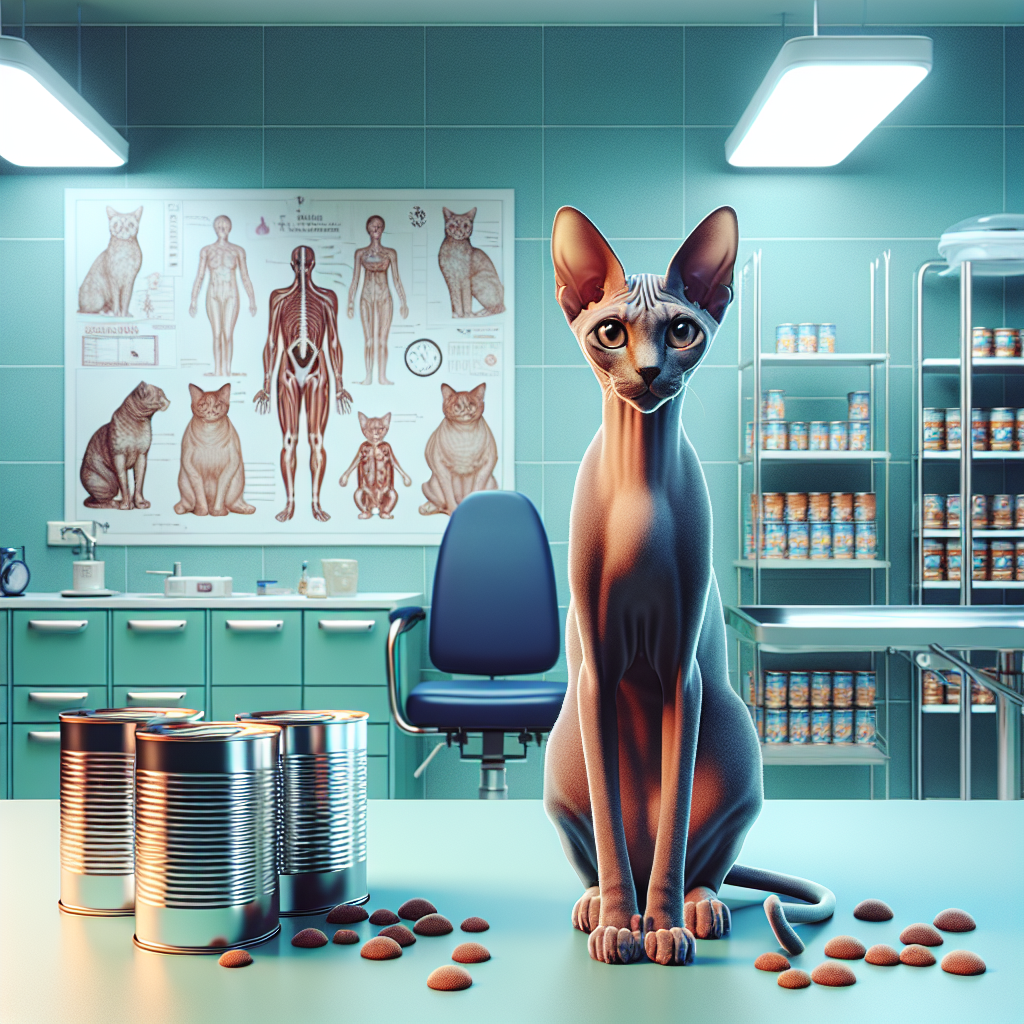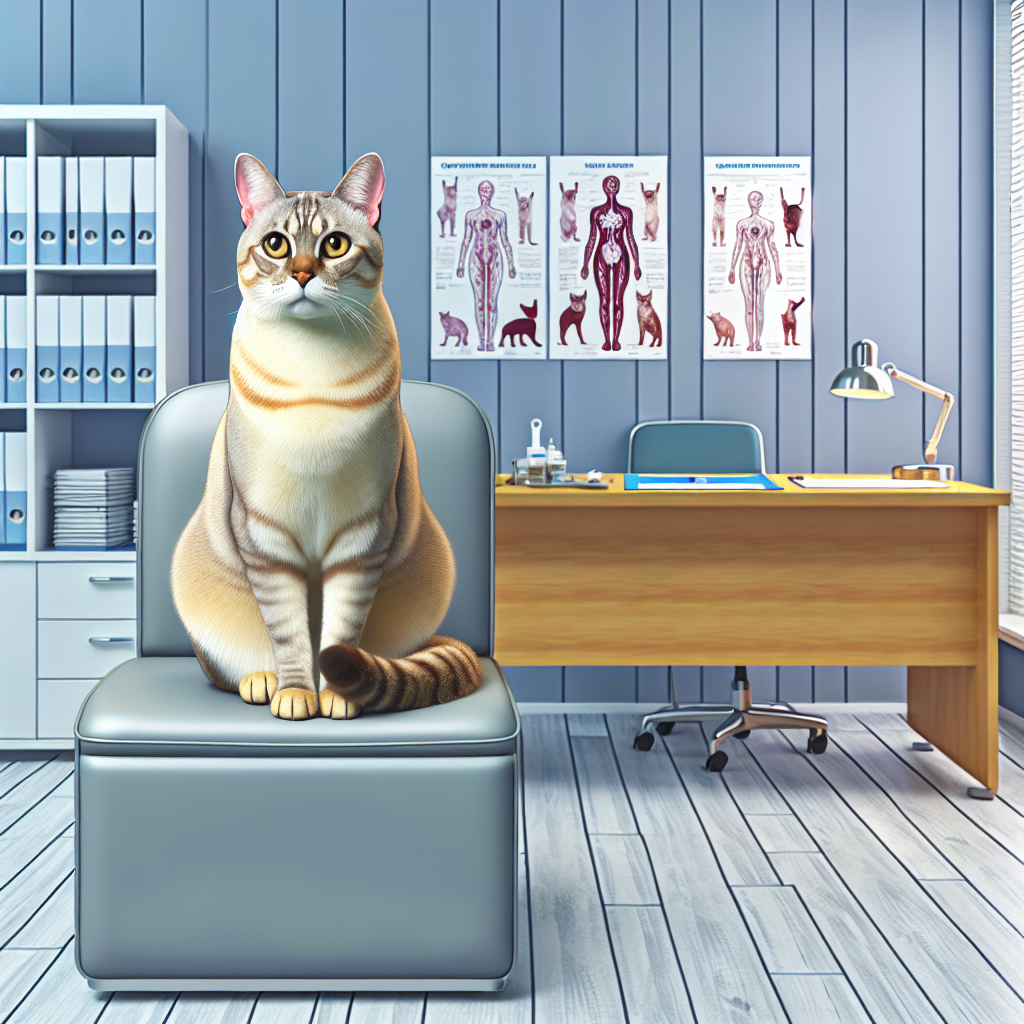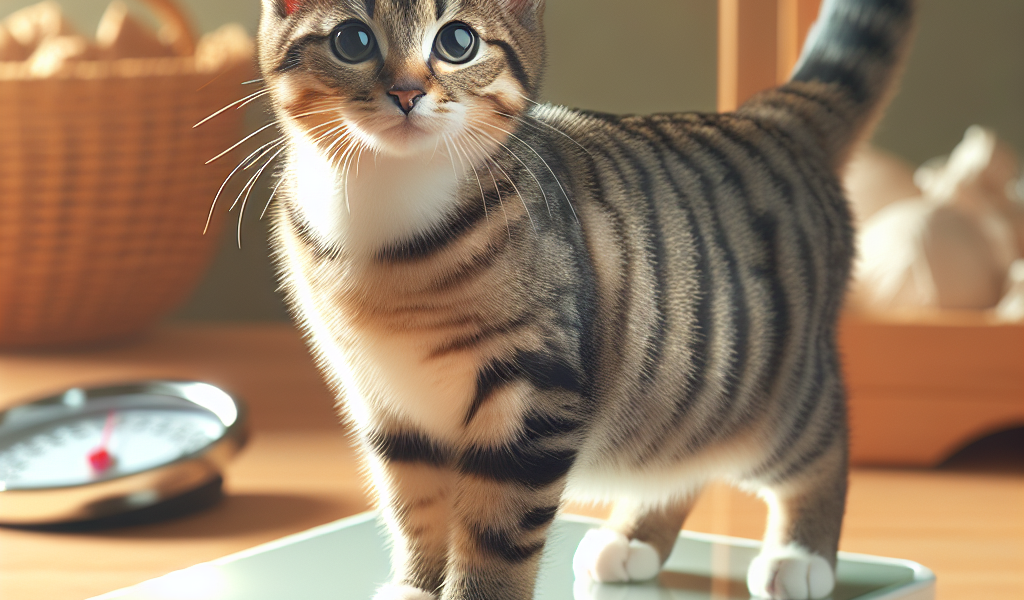Unraveling the Mystery: What Causes Rapid Weight Loss in Cats?
Are you concerned about your feline friend’s recent weight drop and desperate for answers? In “Unraveling the Mystery: What Causes Rapid Weight Loss in Cats”, you’ll find crucial information about potential causes like health issues or dietary changes that may be causing your cat to lose weight rapidly. From metabolic disorders to stress, you’ll learn about all the possible reasons for this startling change, equipping you to provide the best care for your beloved pet.
Understanding Cat Physiology
Cats are unique creatures, with their own distinct physiology that sets them apart from other animals. Understanding their physiological makeup is vital to understanding their health and wellbeing, especially when it comes to weight management.
Basics of feline metabolism
You may have noticed that cats are quite nimble and agile creatures. However, you may not realize that their lean muscles and rapid movements are powered by a highly efficient metabolism. Feline metabolism is quite diverse and plays a role in everything from maintaining body temperature to powering physical activity. It is designed to break down fats and proteins for energy, unlike other mammals that primarily use carbohydrates.
Role of diet in cats
The cat’s diet plays a critical role in maintaining their health and wellbeing. They are true carnivores and their bodies are designed to obtain nutrients from meat. Their diet should contain necessary nutrients like proteins, fats, vitamins, and minerals. Cats that don’t receive a balanced diet can potentially develop nutrient deficiencies, which may lead to weight loss and other health problems.
Optimal weight ranges in cats
Keeping your cat at an optimum weight is crucial for its health. The ideal weight for cats can vary based on their breed and age. For an average domestic cat, the ideal weight typically ranges between 8 to 10 pounds. It’s essential to regularly monitor your cat’s weight and consult with your vet if you notice any drastic changes.
Significance of Weight Loss in Cats
Cats can experience weight changes just like humans, although sudden weight loss can be particularly alarming and may indicate serious health issues.
Defining rapid weight loss
Rapid weight loss in cats is defined as losing more than 2 pounds over a month. While some fluctuations in weight are normal, drastic, and sudden weight loss is usually a sign of an underlying health issue.
Monitoring weight changes in cats
Keeping a regular check on your cat’s weight is crucial. It’s recommended to weigh your cat every month. You might want to use specialized pet scales for accuracy. If you notice your cat seems less muscular or bony, it might be a sign of weight loss.
How to correctly weigh your cat
To weigh your cat, use a pet or baby scale for small cats. For accuracy, weigh your cat at the same time each day, ideally in the morning before feeding it. Keep a record to monitor any trends or sudden changes in their weight.

Common Illnesses that Cause Weight Loss in Cats
Several diseases can lead to weight loss in cats. Recognizing them can be the first step towards treatment.
Renal diseases
Renal or kidney disease is common in older cats. Symptoms may include loss of appetite, dehydration, lethargy, and noticeable weight loss.
Hyperthyroidism
Hyperthyroidism is another common ailment in cats. Cats with this condition may show signs of increased appetite and excessive thirst, yet they still continue to lose weight.
Diabetes mellitus
Diabetes is another condition that can contribute to weight loss in cats. It impairs the body’s ability to break down sugars, leading to weight loss, despite an increased appetite.
Gastrointestinal problems
Gastrointestinal issues such as inflammatory bowel disease or intestinal cancer can also cause weight loss in cats, often accompanied by changes in appetite or vomiting.
Impact of Parasites on Cat Weight
Parasites can have significant effects on a cat’s health, including their weight.
Common feline parasites
Common parasites in cats include fleas, ticks, lice, mites and various intestinal worms. While some cause discomfort, others can lead to nutrient malabsorption or anemia, resulting in weight loss.
Effects of parasitic infestations
Parasites can cause severe damage to a cat’s health by absorbing the nutrients they ingest, leading to malnourishment and weight loss. Cats subjected to severe parasite infestations might become weak, lethargic and lose weight drastically.
Prevention and treatment of parasites in cats
Prevention is the key to protect your cat from parasites. Regular deworming, flea, and tick treatment are advisable. If your cat has a parasitic infestation, do consult a vet for the appropriate treatment.

Dental Problems Resulting in Weight Loss
Dental issues can directly impact a cat’s ability to eat properly, leading to weight loss.
Exploring feline dental diseases
Cats, much like humans, can develop a variety of dental problems, such as gingivitis, periodontal disease, and tooth resorption. These conditions can make eating painful, affecting their appetite.
How dental issues affect cat appetite
Dental problems can make chewing a painful experience for cats, causing them to eat less and lose weight over time. They may also prefer wet food over dry food since it’s easier to eat.
Managing and treating dental disease in cats
Regular check-ups with a vet can prevent the progression of dental diseases. Providing a dental diet, regular tooth brushing, and dental chews can help maintain their oral hygiene. If your cat already has a dental issue, a vet might recommend professional cleaning, medication, or even tooth extraction.
Changes in Diet and Weight Loss
Changing your cat’s diet abruptly or not providing a well-balanced meal can contribute to weight loss.
Effects of sudden diet changes
Suddenly changing your cat’s diet can upset their stomach, leading to digestive issues that can cause a loss of appetite and consequent weight loss.
Inadequate nutrient intake
An unbalanced diet can lead to inadequate nutrient intake. This can lead to malnutrition and weight loss, and eventually result in severe health problems.
Choosing the right cat food
To prevent diet-related weight loss, choose a high-quality, life stage-appropriate cat food. Ensure the food is well balanced, with adequate protein, fat, and other essential nutrients. If your cat needs a special diet or you’re thinking about changing their food, consider consulting a vet.

Cancer and Weight Loss in Cats
Cancer, though less common than other illnesses, can lead to serious weight loss in cats.
Overview of feline cancers
Cancer can occur in any part of a cat’s body. Some of the most common types include lymphoma, mammary gland cancer, and skin cancer.
How cancer affects cat’s weight
Cancer often causes a loss of appetite and decreased food intake, leading to weight loss. Additionally, certain types of cancer can cause metabolic changes that lead to muscle wasting and consequently weight loss.
Treatment options for cancer-stricken cats
Cancer treatment in cats can range from surgery, chemotherapy, to radiation therapy, depending on the type and stage of the cancer. Nutrition also plays a crucial role in managing the disease.
Stress and Anxiety Impact on Cat Weight
Believe it or not, cats can suffer from stress and anxiety which can directly impact their weight.
Diagnosing feline stress and anxiety
Signs of stress and anxiety in cats include changes in behavior like aggressiveness, avoidance behavior, grooming excessively, changes in appetite, urinating outside the litter box, and weight loss.
Effects of stress on cat’s weight
Stressful events or environments can decrease a cat’s appetite, leading to weight loss. Chronic stress may also lead to a variety of health issues, including digestive problems, which can affect a cat’s weight.
Management strategies for feline stress and anxiety
You can alleviate stress in cats by maintaining a routine, establishing a calm environment, and offering comfortable hiding and sleeping spots. Interactive toys and positive reinforcement can also help. If the stress is extreme, your vet might recommend medications.

Hormonal Imbalances and Weight Loss
Endocrine disorders, or hormonal imbalances, can cause various clinical signs in cats, including weight loss.
Common hormonal disorders in cats
Some common hormonal disorders in cats include diabetes, hyperthyroidism, and adrenal diseases. These conditions can impact numerous physiological functions, including metabolism and appetite.
How hormones affect weight in cats
Hormonal imbalances can affect multiple body systems and the cat’s metabolism, resulting in weight loss. For instance, hyperthyroidism speeds up metabolism, leading to weight loss despite increased food consumption.
Treatment and management of hormonal imbalances
Most hormonal disorders are chronic and require lifelong management. Treatments can range from daily medication to dietary changes.
Finding Solutions: Vet Check-ups and Diagnostics
Regular vet check-ups can help catch any potential health issue before it becomes severe.
Importance of regular vet check-ups
Routine vet check-ups are a crucial part of your cat’s healthcare routine. These visits can help your vet spot any early signs of illness, and they provide an opportunity to monitor your cat’s weight and general health.
Diagnostic tests for weight loss in cats
If your cat is losing weight, your vet may suggest various diagnostic tests like blood tests, urinalysis, radiographs, ultrasound, or even biopsies to determine the underlying cause.
Interpreting results and planning treatments
Once the results from the diagnostic tests are out, your vet can help interpret them and devise a suitable treatment plan based on the diagnosis. This could involve medications, dietary changes, or, in some cases, surgery.
Ensuring your cat maintains a healthy weight is a cornerstone of pet health. If you notice your cat losing weight, don’t panic. Remember, it’s usually an indication of an underlying issue. Early veterinary intervention can make a big difference in your pet’s health and quality of life.


